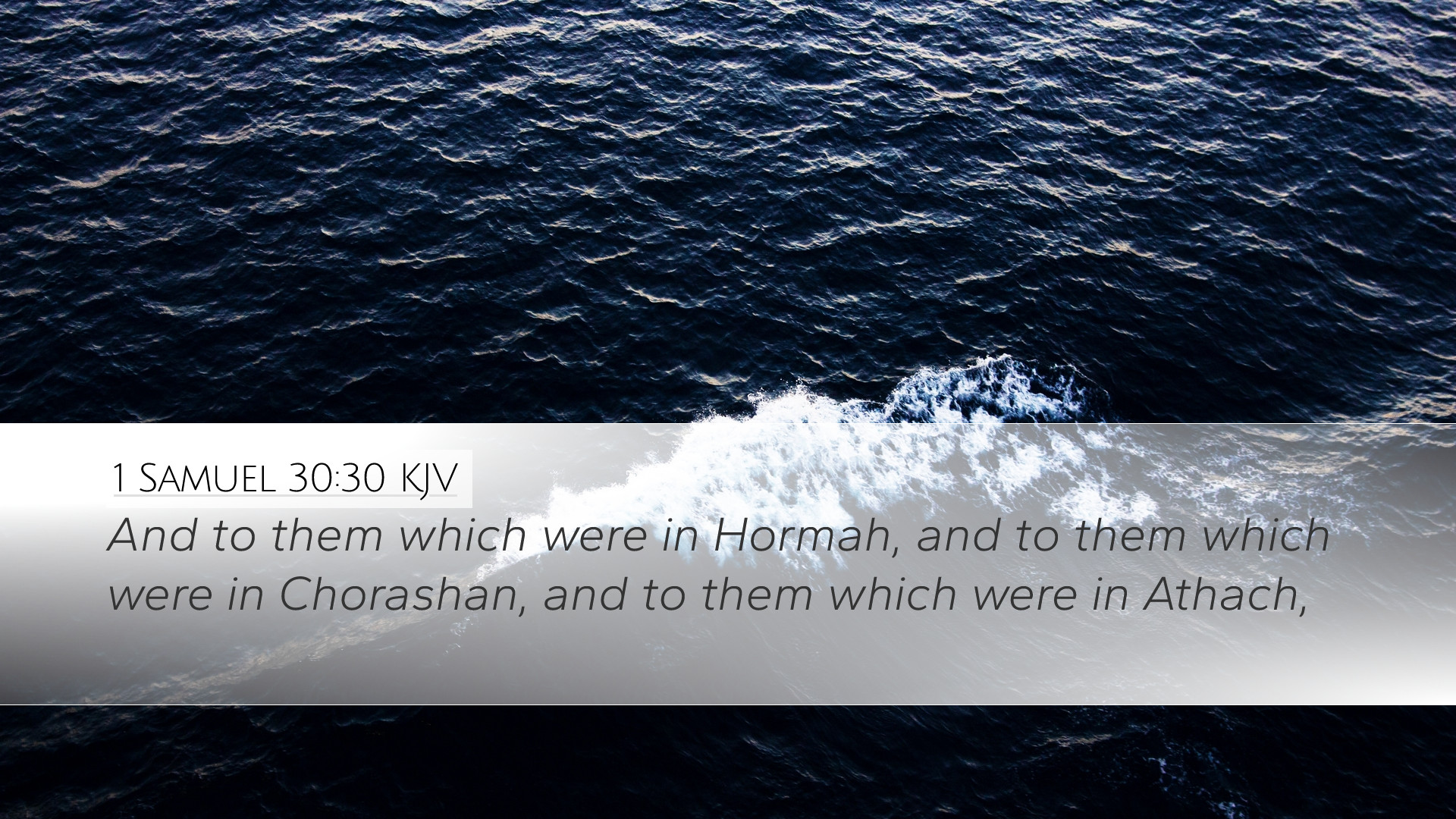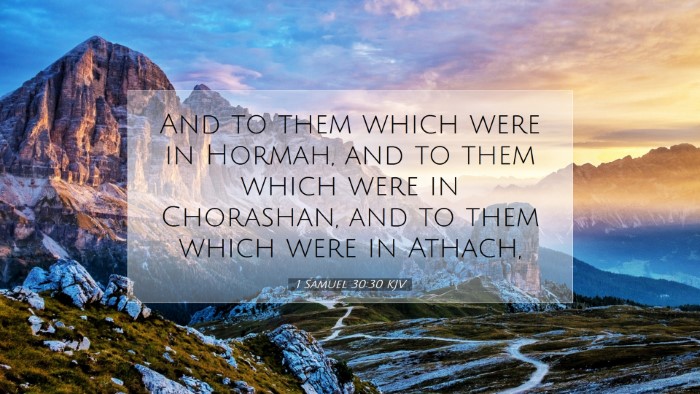Commentary on 1 Samuel 30:30
1 Samuel 30:30 states: "And in Hebron he reigned over Judah seven years and six months." This verse serves as a crucial transition point in the narrative regarding David's kingship and the establishment of his rule over Judah, preceding his reign over the united kingdom of Israel.
Contextual Overview
In the preceding chapters, David's life is deeply intertwined with conflict and sorrow. This specific verse encapsulates the culmination of years of struggle that lead to David's ascension to a position of leadership. It is vital to explore the implications of this transition both historically and theologically.
The Significance of Hebron
Hebron plays a symbolically important role in Israel’s history. It was not only a city of refuge but also associated with the patriarch Abraham. Some commentators highlight that David's reign in Hebron established the legitimacy of his kingship in a territory steeped in ancestral ties. As Matthew Henry notes, Hebron served as a fitting backdrop for David's leadership, where he could affirm his Davidic line's connection to the patriarchs.
David’s Seven Years and Six Months Reign
The duration of David's reign is significant. It suggests a period of consolidation and establishment. Albert Barnes emphasizes that during these years, David focused on unifying the tribes of Judah and laying the groundwork for his future kingship over all of Israel. This time was crucial for David, as it allowed him to strengthen his administration and gain the loyalty of the people.
Theological Implications
This verse has profound theological implications as it demonstrates the unfolding of God’s redemptive plan through Israel's monarchy.
- God's Sovereignty: The text illustrates how God orchestrates events for His purposes, demonstrating that despite David's trials, he was on the path to becoming the King as ordained by God.
- Fulfillment of Prophecy: David’s reign can be seen as a fulfillment of the anointing Samuel imparted, thus reinforcing the idea that God’s promises are ultimately fulfilled in His timing.
Leadership Lessons from David's Reign
For pastors, students, and scholars, there are several leadership lessons gleaned from David's time in Hebron:
- Patience in Leadership: David had to wait several years before ruling all of Israel. His patience is a reminder of the importance of waiting on God’s timing in leadership roles.
- Building Relationships: David forged alliances and built relationships that would be crucial in his later reign. Effective leadership often involves connecting personally with those we lead.
- Adversity Prepares Leaders: David’s previous hardships transformed him into a compassionate leader, teaching us that adversity can refine our skills for future challenges.
Conclusion
The reign of David over Judah for seven years and six months is more than a historical detail; it serves as a testament to God's faithfulness and the importance of preparation and relationship in leadership. As we reflect on 1 Samuel 30:30, it urges us to consider the larger narrative of God's plan and how He prepares His chosen leaders for their divine assignments.
By studying this verse and its context, pastors, students, and theologians can deepen their understanding of divine providence in leadership and the significance of patience and preparation in their own ministries.


